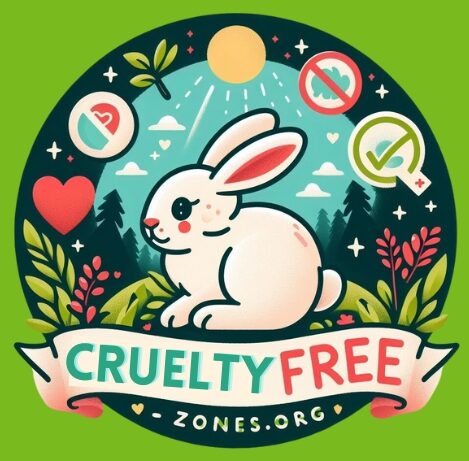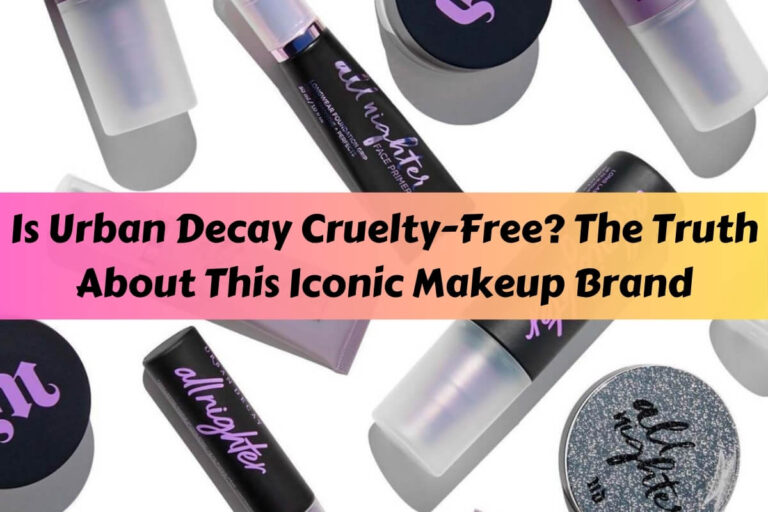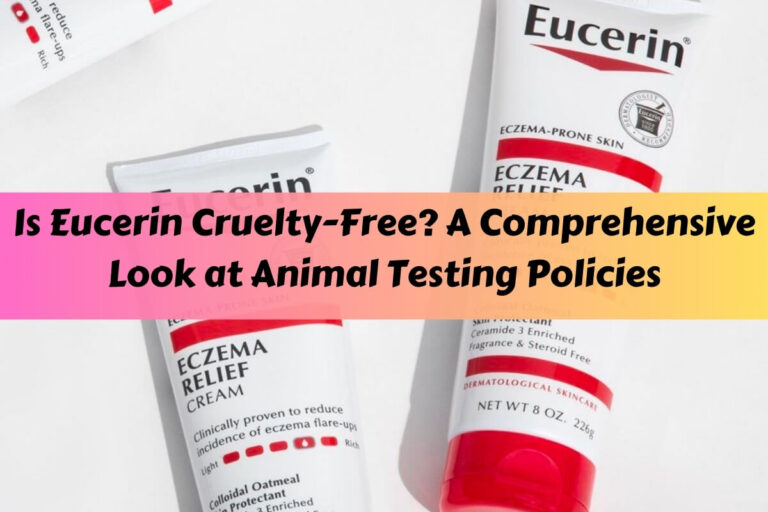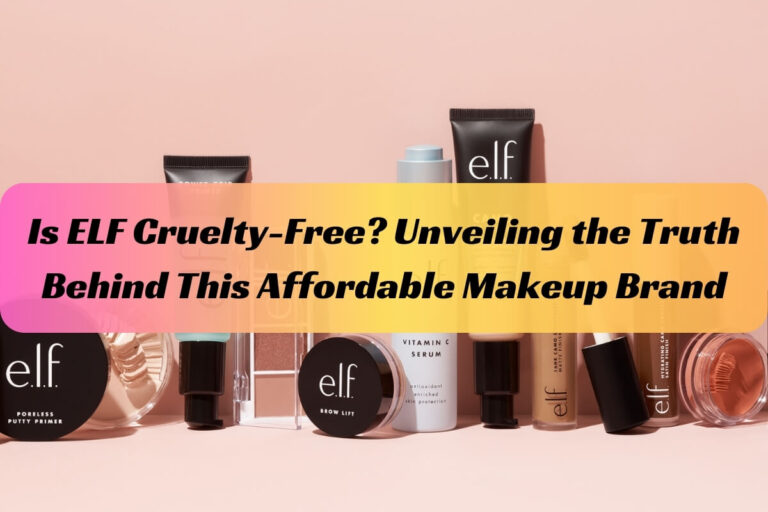Is Cetaphil Cruelty-Free? Truth Behind This Skincare Brand
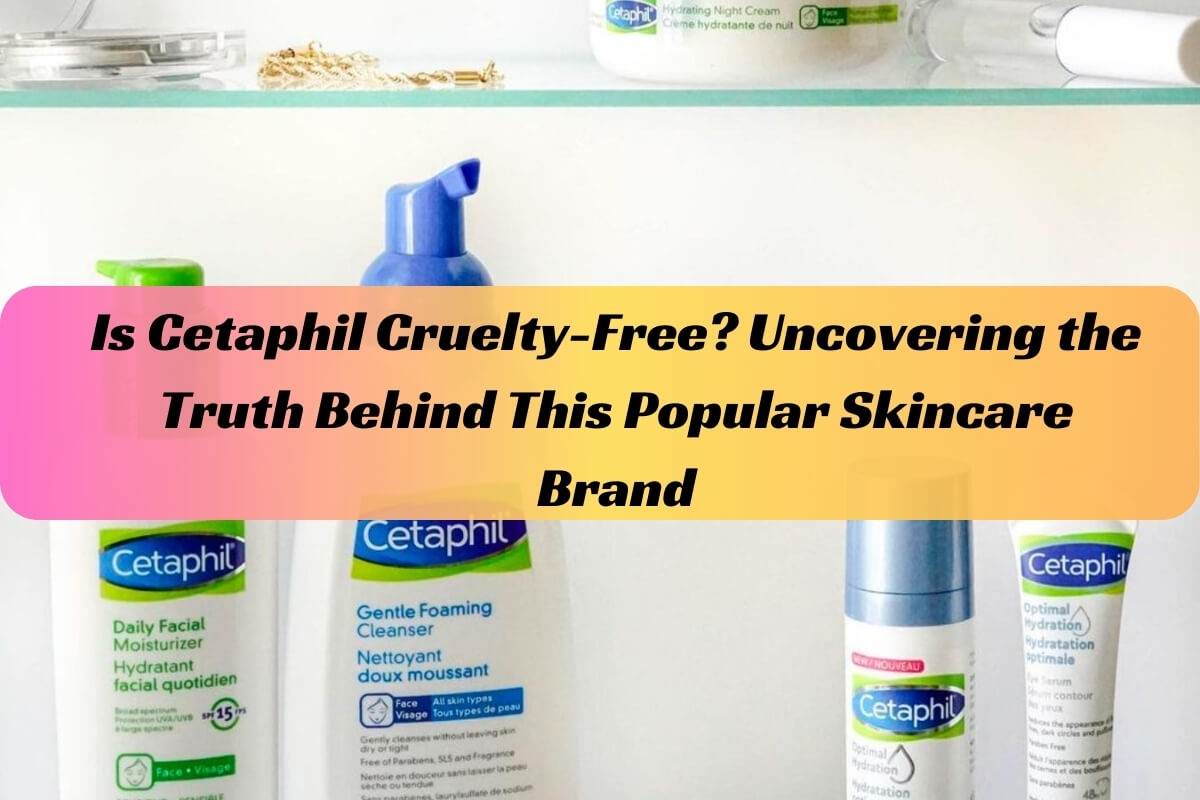
Many people want cruelty-free and vegan skincare items. They care about animal testing and ethical practices. Cetaphil is a popular brand that makes gentle, affordable products. However, there are questions about whether Cetaphil is truly cruelty-free.
We’ll explore Cetaphil’s policies, certifications, and stance on animal testing and animal-derived ingredients. By the end, you’ll have a clear understanding of whether Cetaphil aligns with your values and can make an informed decision about using their products.
What Does “Cruelty-Free” Really Mean?
Before we delve into Cetaphil’s cruelty-free status, let’s define what “cruelty-free” means in the cosmetics and skincare industry.
A cruelty-free product or brand means:
- No animal testing is conducted during any stage of production, including ingredient sourcing, formulation, and final product testing.
- The brand does not hire third parties or suppliers to test on animals on their behalf.
- The products are not sold in countries or markets that require animal testing by law.
Reputable organizations like Leaping Bunny and PETA have strict criteria for certifying brands as cruelty-free. This certification provides consumers with assurance and transparency.
Cetaphil’s Official Animal Testing Policy
Cetaphil, owned by the pharmaceutical company Galderma, claims that its products do not contain any animal-derived ingredients. They also state that they do not test their products or ingredients on animals during the development, innovation, or manufacturing processes.
However, Cetaphil’s policy takes a controversial turn when it comes to third-party testing and selling in certain markets. Their statement reads:
“Some health authorities may conduct animal testing for certain cosmetic products before approval for sale on the market, as is still the case in China. Cetaphil is therefore not considered cruelty-free.”
This statement implies that while Cetaphil itself may not directly test on animals, it allows third-party testing when required by law, particularly in mainland China.
Availability in Mainland China – A Roadblock to Being Cruelty-Free?
China has strict laws that require animal testing for most imported cosmetics, including skincare products. This has been a contentious issue for many cruelty-free brands, as they must choose between entering the lucrative Chinese market or upholding their ethical principles.
In recent years, China has made some exceptions to its animal testing laws. Domestic cosmetics produced and sold within the country may be exempt from animal testing. However, imported general cosmetics and special-use products like sunscreens, hair dyes, and anti-hair loss products still require animal testing.
Cetaphil offers a range of special-use products, including sunscreens, in various markets, including mainland China. This means that while their general skincare products may not undergo animal testing, their special-use products likely do when sold in China.
Is Cetaphil Certified Cruelty-Free?
Despite Cetaphil’s claims of not testing on animals during their processes, the brand is not certified as cruelty-free by major organizations like Leaping Bunny or PETA.
Certification from these organizations is crucial because it involves a rigorous auditing process. Brands must provide evidence of their policies, ingredient sourcing, and supply chain to ensure they meet the strict cruelty-free criteria.
Without this certification, consumers must rely solely on the brand’s self-reported policies, which may not always align with the expectations of ethical consumers.
The Vegan Question – Does Cetaphil Use Animal-Derived Ingredients?
Veganism goes beyond being cruelty-free. It involves eliminating the use of any animal-derived ingredients or by-products in products, such as beeswax, honey, collagen, or lanolin.
Cetaphil claims that most of its products do not contain animal-derived ingredients. However, some products in their lineup do contain ingredients like sodium tallowate, which is derived from animal fat.
Cetaphil’s ingredients, like glycerin, can come from plant, animal, or synthetic sources. Without brand transparency, it’s hard to confirm Cetaphil as a vegan brand.
Furthermore, Cetaphil is not certified as vegan by any major organization, adding to the lack of clarity around its vegan status.
Vegan Alternatives to Cetaphil
If you’re seeking cruelty-free and vegan alternatives to Cetaphil, several brands offer gentle and effective skincare solutions:
- CeraVe (Some products are vegan, but the brand is not cruelty-free)
- Pacifica
- Derma E
- Acura
- Mad Hippie
- Burt’s Bees (Some products are vegan, and the brand is cruelty-free)
It’s essential to research each brand’s policies and certifications to ensure they align with your values.
What Do Dermatologists and Consumers Say?
Despite the controversies surrounding Cetaphil’s cruelty-free and vegan status, many dermatologists continue to recommend their products, particularly for sensitive skin types. The brand’s gentle formulations and affordable prices have made it a popular choice among consumers.
Cetaphil’s stance on animal testing and lack of transparency have been criticized by the cruelty-free community. Many consumers have chosen to boycott the brand and opt for alternative products that align with their values.
The decision to use Cetaphil or alternative brands depends on personal beliefs and priorities.
Making an Informed Choice
After exploring Cetaphil’s policies, certifications, and ingredients, it’s clear that the brand falls short of being truly cruelty-free and vegan by most ethical standards. While they claim not to test on animals during their processes, they allow third-party testing where required by law and sell in markets like mainland China, where animal testing is mandatory for certain products.
Additionally, the lack of transparency around ingredient sources and the absence of vegan certifications raise questions about the brand’s alignment with vegan principles.
If being cruelty-free and vegan is a priority for you, it’s crucial to research and make informed choices. Consider exploring alternative brands that have obtained reputable certifications and are transparent about their policies and ingredient sources.
The decision is yours as a consumer. Weigh the information, evaluate your values, and choose what aligns with your ethics.
Conclusion
In summary, while Cetaphil claims not to test on animals during their processes, they cannot be considered a truly cruelty-free brand due to their stance on third-party testing and availability in markets that require animal testing by law. Additionally, their lack of transparency around ingredient sources and the absence of vegan certifications raise questions about their alignment with vegan principles.
As conscious consumers, it’s our responsibility to make informed choices that align with our values. Whether you choose to continue using Cetaphil or explore alternative cruelty-free and vegan brands, the decision should be based on thorough research and personal beliefs.
We encourage you to share your thoughts, experiences, and recommendations in the comments below. Together, we can promote ethical practices in the cosmetics and skincare industry and make a positive impact on animal welfare and the environment.
